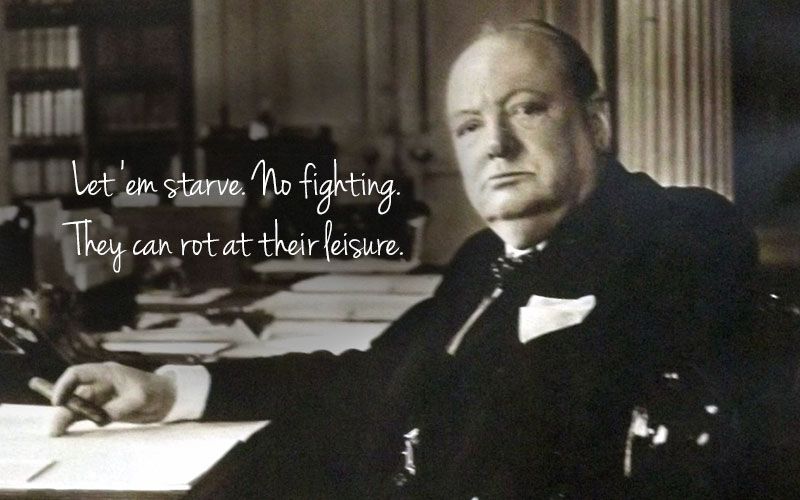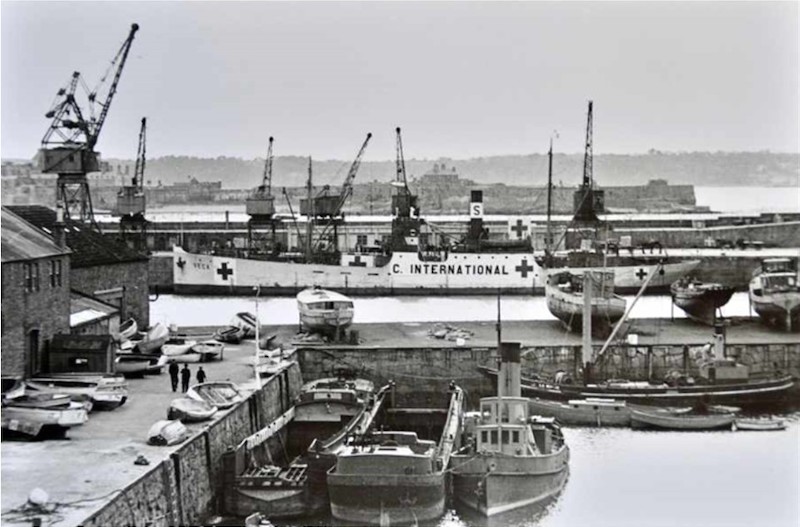


80 years' ago today, the British Prime Minister scrawled a controversial comment on the bottom of a report concerning the Channel Islands' Occupation. Whether he intended for the occupying German army to starve, or the resident population, remains a point of contention today.
On 27 September 1944, the Second World War was ongoing but the Allies had secured some victories and the tide was turning against the German advance.
With Normandy now liberated, lifeline supply links with the Channel Islands were cut off.
That meant that neither the occupied islanders nor the occupying forces were getting enough food or other vital supplies such as medicines.
To combat the shortage of supplies the German army sought to reduce the occupied population.
It was suggested that women, children, and elderly residents be evacuated while men of fighting age would have stayed if this plan had progressed.
The UK's War Cabinet put this suggestion to Sir Winston Churchill - who rejected the idea outright.
He is said to have written his opinion on the bottom of the report, which landed on his desk 80 years ago today.
Local amateur historian Nick Le Huray shares photographs of this report, and his views on the comment itself, on his Island Fortress blog site.
Mr Le Huray describes the comment as "controversial" and explains in detail how he things the understanding of what Churchill meant has changed over the years.
This week he told Express that his personal view has not changed since he first published this particular blog post, two years ago today.
"Over the years this has become a very controversial comment with various historians and islanders interpreting it differently," wrote Mr Le Huray. "Some felt that he meant just the German garrison, others felt that he meant both the garrison and the islanders.
"The aspect that is always focused on is the lack of food and Churchill’s refusal to allow a supply of the islands with food. The rationale for this was that it was felt that the Germans would take the food for themselves. The islands effectively formed a prisoner of war camp which didn’t require guards but meant that a large force of German resources were tied up there rather than being able to be deployed in mainland Europe."
Mr Le Huray believes that as Churchill's comment was made just days after the German's had refused to surrender the Channel Islands, it's clear that the comment was aimed at the German Occupying Forces and not the occupied islanders.
"If they had decided to surrender they could have saved the islanders and their own personnel from a terrible winter of hunger and deprivation," he wrote.

Pictured: The Red Cross ship, the SS Vega which delivered aid parcels to the Channel Islands in December 1944, and early 1945.
How Churchill's comment became known is unclear, but it is a well established fact of the Second World War.
To some Channel Islanders it is as pertinent as his comments made on 8 May 1945 when he declared "...and our dear Channel Islands are also to be freed today".
While people celebrate the second phrase, the first remains a point of contention for many Channel Islanders.
"Whatever the true reason or reasons were some islanders held it against Churchill for the rest of their lives," wrote Mr Le Huray.
That may have been for good reason, as it is also a fact that the resident populations of the Channel Islands were indeed starving by the end of 1944.
Factual stories of pets being consumed are well known and thefts were punishable by deportation to labour camps in other occupied territories, even if the theft was to feed oneself.
Evacuated islanders who returned home later in 1945 were said to be shocked at the emaciated physical condition of their loved ones who had remained on island.

Pictured: An undated photo showing people queuing to buy food in the High Street during the early years' of the Occupation.
Mr Le Huray is not the only local historian to have queried the meaning of Churchill's "let 'em starve" comments.
History.gg states: "There has been much debate in the years since then whether Churchill was referring solely to the occupying forces, or to the Channel Islanders, too.
"Either way, the government declined the German offer. Perhaps this was because by leaving them in place the civilians were a further drain on German resources.
"Maybe it was that the logistics of ensuring safe passage between the islands and the mainland was too much to contemplate."
The author continues: "...perhaps Churchill was merely being spiteful towards Germany after so many years of war, and had little consideration for the collateral harm it would do to the Channel Islanders.
"Either way, things only got worse for the next three months."
Churchill's determination to win the war is well documented - he was set on securing "victory at all costs" and is viewed as a hero by generations of British people.
The controversial comment he scrawled has divided Channel Islanders' opinions during the eight decades since, and it will likely continue to do so as we head towards the 80th anniversary of the islands' liberation.
Churchill's plans to bomb us unveiled
WATCH: The sights and sounds of Guernsey's Liberation in 1945
FOCUS: How the SS Vega got damaged in Guernsey
Guernsey historian asked to share WWII stories
LISTEN: D-Day and Guernsey - Part 2 The Invasion and the Aftermath
Comments
Comments on this story express the views of the commentator only, not Bailiwick Publishing. We are unable to guarantee the accuracy of any of those comments.